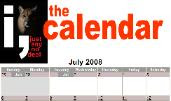The more surveys we can turn in to the people who make the actual decisions on which platform issues will come before the delegate body in Denver, the more we can demonstrate the level of interest and passion in these issues.
We also promise that, once the math crunching is done, you’ll get to see how everyone voted on each measure (which you can read below).
, please do.
… if you haven’t e-mailed ALL of your friends and asked them to vote, please do it today. Thanks!
The Drafting Committee of the Democratic National Convention is meeting this Friday, Saturday, and Sunday in Cleveland. This committee will draft the platform that the Platform Committee will debate and ratify at a meeting the following weekend.
Many people think the party platform is a document with no force, but it is actually binding on the party and the next DNC chair for four years. As Hillary supporters who believe the party needs to be reformed, it is absolutely critical that we use whatever opportunity we have to affect the platform.
The Obama Campaign invited voters to tell the Democratic Party what the Platform should be.
I Own My Vote responded by putting forward 10 possible platform planks that address the concerns of Hillary Clinton’s supporters and asking people who signed the I Own My Vote Pledge to vote on whether they agree or disagree with each plank. Each plank that receives a majority of the votes will be submitted to the DNC as part of the I Own My Vote Platform Suggestions.
It is imperative that we deliver the results to the Drafting Committee on Thursday afternoon before the committee meets. Hillary’s platform committee members are waiting for this platform.
It is our goal that over 1000 people will participate in our virtual platform meeting so we can show a real commitment to the positions we articulate. So please, sign the I Own My Vote pledge and visit the virtual platform committee now.
HERE ARE THE PLATFORM MEASURES YOU WILL BE ENDORSING. VOTE now, and then ponder the possibilities! We could actually change how the Democratic party operates its primaries!
Equal Rights Amendment
The Democratic Party apologizes to all women for removing the passage of the Equal Rights Amendment from John Kerry’s 2004 Democratic National Convention Platform.
The Equal Rights Amendment must be passed during the next congressional session.
VOTE.
Universal Healthcare
The Democratic Party will use all available means to create a system of universal healthcare under which 100% of the population will be covered by comprehensive health insurance.
The Democratic Party and its leaders will oppose any efforts to redefine the term “universal healthcare” to mean any policy that insures less than 100% of the population.
We believe that Senator Hillary Clinton’s health care plan is the most effective way to create a system of universal healthcare for all Americans.
The United States must mandate that all citizens have health insurance.
Vote
One Person One Vote
In our democratic system, every adult person is entitled to one vote.
The 2008 primaries illustrated that a caucus vote is worth more than a primary vote because each delegate elected by caucus represents less voters than each delegate elected by primary.
Caucuses allow party officials to exert undue influence and coercion over voters.
Caucuses are immune from federal oversight, while primaries are subject to federal election law.
Therefore, the Democratic Party will forbid caucuses in all future nominating processes and will require all states to conduct primaries to select their delegates to future national conventions.
VOTE.
Fair Reflection
The Democratic Party and Senator Obama apologize to the voters of Michigan for supporting a delegate selection plan that allotted pledged delegates to the Democratic National Convention through a method that substituted the judgment of members of the DNC’s Rules and Bylaws Committee for the judgment of Michigan’s voters.
VOTE.
No Geographic Preference
No state is more important than any other state. No voter is more important than any other voter.
The Democratic Party has engaged in a practice that has given preference to some states over others.
In the future the Democratic National Committee will not give preference to any state in scheduling the primary elections.
So long as all states hold their primaries within a prescribed window of time, the Democratic Party will not penalize any state for scheduling its primary before or after any other, even if as a result all states schedule their primaries for the same day.
VOTE.
Discrimination
The Democratic Party will not tolerate discrimination based on race, gender, gender identity, sexual orientation, religion, or nation of origin.
The Democratic Party leadership, including the DNC executive committee, presidential and vice-presidential nominees, House and Senate leadership, and members of all committees within the Democratic National Committee, will from this point forward publicly defend candidates and officeholders who are attacked on any of these bases in the media.
VOTE.
Prevention of Unjust and Foolish Wars
The Democratic Party opposes all unjust and foolish wars.
The key to preventing unjust and foolish wars is an informed electorate with a vested interest in the nation’s military policies who will hold Congress accountable.
Relying on a volunteer military constituted of paid soldiers and contractors insulates the vast majority of Americans from the dangers and consequences of our nation’s military actions.
The Democratic Party opposes any disproportionate impact such military composition has on individuals, families, and communities based on race, economic status, economic opportunity, or educational level.
Barack Obama has inspired young people everywhere to support him. The Democratic Party believes that these young people are the key to stopping unjust and foolish wars.
Therefore, the Democratic Party supports the reinstatement of the draft as proposed by Congressman Charlie Rangel of New York.
VOTE.
A Fair, Open, and Legitimate Convention
It is in the best interests of Party unity that there be no question about the legitimacy of the electoral process.
The election of the Democratic nominees for the offices of president and vice president shall take place at the Democratic National Convention.
Party leaders shall not do anything to discourage or suppress the delegate vote at the Democratic National Convention.
In the event that any candidate receives more than 25% of the popular vote for president, his or her name shall be automatically entered into nomination for the office of president of the united states and the secretary of the convention shall take a roll call vote of all the delegates. In this eventuality, the party shall not nominate any candidate for president by aclimation.
VOTE.
LGBT Rights
All members of the Democratic Party, led by the nominee for President, will work together to repeal the Defense of Marriage Act and to provide equal federal benefits to all married couples, with marriage defined by the state or country where the marriage was solemnized.
The Democratic Party will also use all means to ensure that the same benefits that exist for married couples exist for all civil unions.
Further, the Democratic Party and its elected officials will not fund or promote any educational material or organization that spreads a message of hate or discrimination against LGBT people.
VOTE.
Defense of Labor
The Justice Department has oversight of some labor unions such as the Teamsters because of a history of union leadership misusing union dues and pension funds.
The Democratic Party supports the working class and unionized labor.
Therefore, the Democratic Party supports continued Justice Department oversight of those labor unions to which such oversight currently applies.
GO HERE. It takes but five minutes!








